#mr bennet critical
Explore tagged Tumblr posts
Text
Meanwhile, in one of my other main fandoms:
My post about reading a surprisingly good article on eighteenth-century economics and (tangentially) Austen showed up on my dash again, I think thanks to @ladytharen. Now that my mind is rather clearer, I remembered that the author (Robert D. Hume) had left a footnote in the brief Austen section saying that it was contracted from a fuller discussion he'd made in a previous paper. I'd meant to check the previous paper out and simply forgot at the time, but that reminded me, so I read the other article, dated to the previous year (April 2013).
This article is simply called "Money in Jane Austen" (much less of a mouthful!), but is similarly granular about details. In terms of the general argument, the abundance of historical and textual details very much works in his favor. But he does fall a bit into the "AustenTime" problem, unfortunately, in this one.
I know I have another post talking in more detail about this, but I couldn't find it! Anyway, "AustenTime" is a term I heard once and have never been able to track down again for an approach to Austen and the times she lived through as this sort of pocket universe in which everything is happening in the same eternal moment that's roughly associated with the Regency England of the 1810s when her novels were first published (and often even more with "the Regency" as codified by Heyer and the Regency romance writers who followed her). Hume's take is much less Heyer-inflected than the usual, of course, but given his general attention to very precise details, it seemed odd that he didn't distinguish more between economic data from the 1770s, 1790s, and 1810s while lumping all her novels into c. 1810.
That said, he did use okay numbers for the central arguments wrt P&P and built from Austen's own extreme and painful consciousness of just how far not much money could go, to the gulf between her circumstances and even characters like Elizabeth's, and then to politely disagreeing with the kind of characterizations of the Bennets' lifestyle you find in even normally reliable things like The Cambridge Companion to Jane Austen. His argument is basically that there's enough textual information to tell us that the Bennets are fairly wealthy by genteel standards, not minor struggling gentry—at about the level of typical baronets in terms of income/land/lifestyle (Mr Bennet's situation is certainly more comparable to a random baronet's than Darcy's). Hume goes into estimates based on explicit details in the novel about the Bennets' household staff etc and what that would signify at the time, all good stuff, so that he can express his true feelings.
And his expression of those was actually really cathartic to read, because Hume's true feelings turn out to be even more seething rage at how much Mr Bennet sucks as a father than I would have guessed from the other article. He's like—
"Mr Bennet sucks SO MUCH y'all, and you might think I'm being ahistorical in my rants about what a failure he is, no I'm not overusing italics he DESERVES italicized hate*, and I've got contemporary source after contemporary source to prove just how incredibly irresponsible and selfish this guy is by the standards of the time and how callous he is about his children's future and even about the ungodly amount of money that Darcy drops to fix Mr Bennet's failures, and maybe it's not clear to most modern readers just how much that would have been BUT I HAVE THE NUMBERS. I swear this character is such an asshole and I'm embarrassed for ever liking him, honestly, and just because Elizabeth doesn't fully condemn him—but hey, remember that passage where she clearly knows more than she's been saying about what kind of man he is—doesn't mean that Austen isn't doing so. Elizabeth doesn't end up paying for Mr Bennet's colossal failures as a father and human in the novel only by authorial fiat, aka Darcy, whose circumstances are almost unimaginably niche even for high-ranking peers—but that's the fantasy, you know? And Charlotte's there to remind us of the reality of just how dire this situation could be in more typical lives, even when we're talking about the women in the richest 1% of the population."
I had a few other nitpicks, but the combination of detailed economic breakdowns and unashamed raw hatred for a character I also despise was truly enjoyable. And it was also—um.
Despite my griping about various Austen critics, I have my own struggles with imposter syndrome, and always feel guilty about how much Important Academic Work In My Field there is that I just haven't gotten around to and how I always feel like I'm missing important information and blahblahblah. But I do feel it a lot more acutely with the seventeenth-century works I've studied, since I came to that a good 15 years after I started getting into Austen criticism. Even so, I was surprised by how soothing it was to read an Austen essay that's imperfect but good and that is punctuated by all these references to other scholars whose names and work I recognized, influential interpretations that I've already read, all that kind of thing. It felt a bit like coming home, honestly, and it was reassuring that everything was so familiar at this point.
---
*He did not actually say that Mr Bennet deserved italicized hate, but italics for emphasis are actually really rare in this kind of writing and there are quite a few of them in the Why Mr Bennet Is The Worst section. More power to you, sir.
#anghraine babbles#long post#austen blogging#austen fanwank#mr bennet critical#boy is it ever. lmao.#ivory tower blogging#austentime critical
35 notes
·
View notes
Text
The way we see mothers in fiction reflects our relationship with our own mothers.
Unless we're going mommy dearest and similar works that show narcissistic mothers and problematic/toxic relationships and portrayals, those are undeniably horrible and bad.
However, when we talk about general mothers portraiture we're going to immediately judge also through what we live and experienced.
I have a wonderful relationship with my mom, though she had me hours after she turned 18, and of course, have committed errors, she still succeeded in parenting and raised me with the best of her abilities. Therefore, I tend to see mother-sons/daughters relationships in a good light, as as depth and development goes by, I can change and adapt my initial opinion.
Therapist and Psychology Professors oftenly remarks that mothers, in a way or another, have some parcel of guilt over how her kids will develop and turn out, some more, some less. Relapse mother? Troubled kids. Distant mother? Insensitive kids. Overbearing/Overprotective? Kids learn to lie, omit, rebel. So on and so forth.
Mothers do have a hand on how you deal with your life. But a loving mother, a zealous mother, a young mother, an older mother, a religious mother, a free spirit mother... All of them doesn't have to justify themselves beyond maybe acknowledging where they went wrong, because, after all, aren't all of them also bound by expectations, morals, time and beliefs? And weren't all of them doing what they thought was right? Weren't all of them dealing with motherhood differently and in their particular ways? With or without support, they did what they could.
But take a look at these mothers:
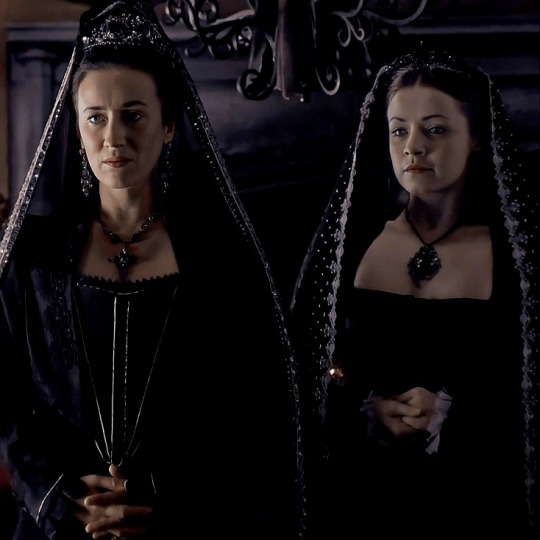
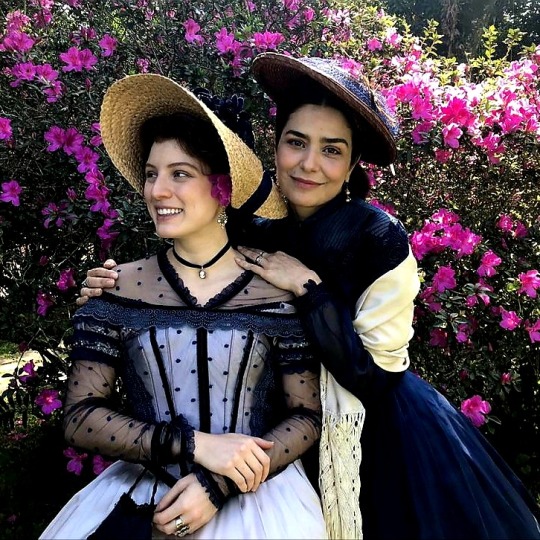
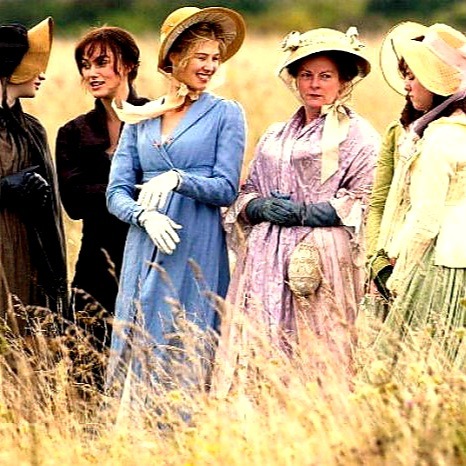
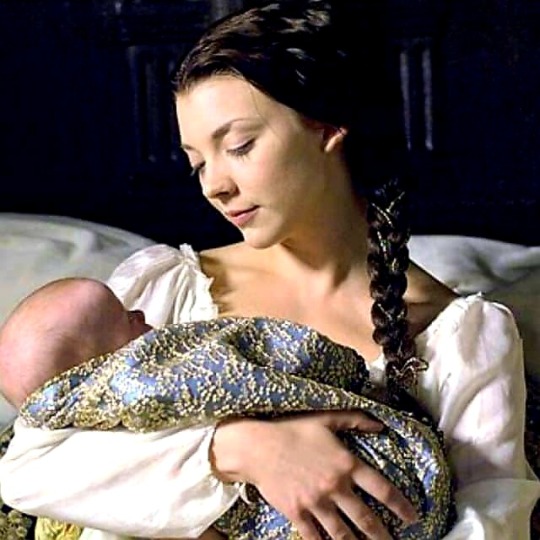
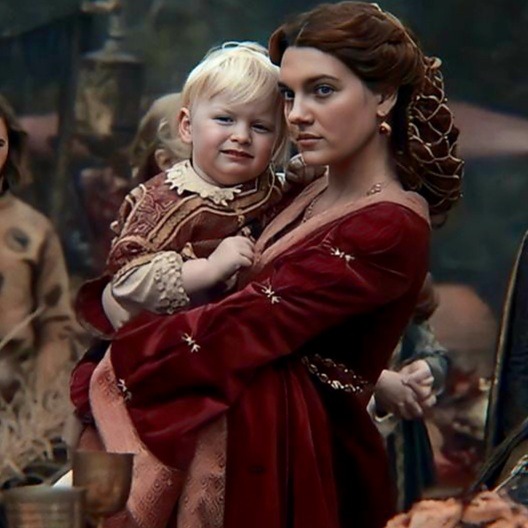
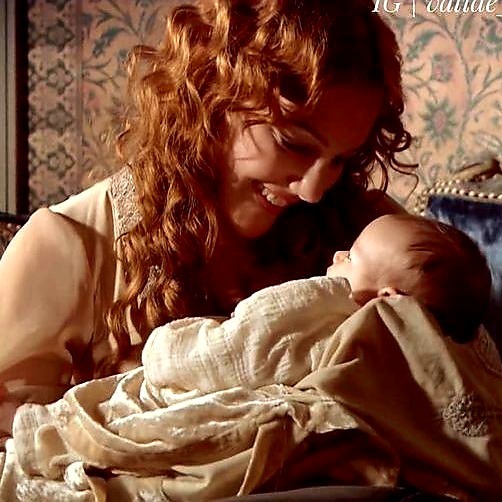

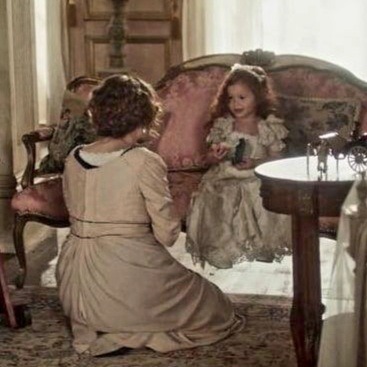
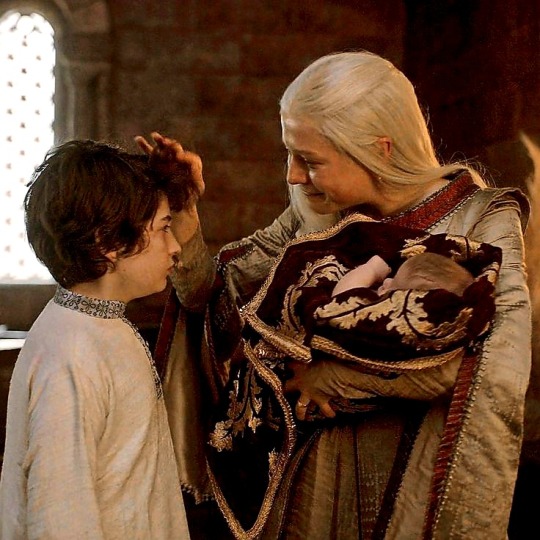
They made mistakes, do they have to justify themselves and ask for forgiveness? Because they did what they have to? To survive, to attend demands, to protect, to ensure their safety and success...
There are mistakes, and there is also another even greater problem: you have to grow up and learn how to deal with this pain yourself, talk, digest, transform it, but no one but yourself will have to learn how to deal with it, even when it was done with such toxic and cruel behaviors, you will have to deal with it. To love or to hate.
Now, let's focus on the love part.
Mary, Elizabeth, Isabel, Januaria, the Bennets girls, Khadija, Alicent, Hürrem and Rhaenyra's children, all of them wouldn't even ask for their justification, ask why they did what they did, because they all know their mother loves them no matter what, they did what they had to do. Distant or not, overbearing, hysterical, insensitive, and doomed by the narrative. They know, and eventually recognize that those actions were done by love.
So yeah, go on, ask your loving mother to justify herself, I dare you all. Ask your grandma and aunt too. Ask that one mother who pissed you off online too.
Also, don't forget that maybe, that parenting style was all they came to know about. And unless one breaks a very long and, shockingly, difficult to recognize cycle, they will unknowingly perpetuate it.
Anyway. That's how I see it. Because oh boy, I wouldn't even ask my mom to explain herself to me, no matter my grievances. But that's a me thing. How do you see it?
#that's my opinion#you may have other insights and approaches#I won't fight and won't even answer rude answers and @#so beware#mothers#parenting#critical of the world#alicent hightower#rhaenyra targaryen#hurrem sultan#jade al adib#o clone#maria leopoldina#teresa cristina#catherine of aragon#anne boleyn#mrs bennet#the tudors#hotd#pride and prejudice#nos tempos do imperador#novo mundo#muhtesem yuzyil#magnificent century#polemic topic but whatever
25 notes
·
View notes
Text
I'm about to say something controversial I think, but I'm not really into the Lizzie Bennet Diaries. For me, the very premise of the show is a non starter, because I cannot BELIEVE that ANY version of Elizabeth Bennet would record people without their knowledge or consent and post those clips online to a large viewing audience. I'm not being a protagonist moral purist; if Lydia was our main character I'd totally roll with it. But it is, objectively, reprehensible behavior that would FIRMLY put Lizzie in a category with "the lack of propriety" shown by her parents and younger sisters. This is a woman who, in the original story, didn't even tell her sisters that Wickham was bad news to protect Georgiana, and you think she'd post Jane's private moments online??? No. Elizabeth has character flaws but invasion of privacy and airing other people's business are never part of them.
#lbd critical#critical#penny posts#i didnt hate it when i watched it but its much more an adaptation of the plot than of the characters if that makes sense#this came up because ive gotten like 100 people telling me to watch lbd after my pride and prejudice but marriage is career post#this is a different cake.#i have been holding this in for a long time#i want to be polite and not rain on parades#but please stop telling me to watch lbd#i have#its also not what i was looking for as a side note because the genesis of that post is actually about mrs bennets characterization#and all the other additions were just fun afterthoughts to stretch that premise#but thats another note i should make another post on
3 notes
·
View notes
Text
Emma and Mister Darcy Similarly take Responsibility and Prove they are Ready for Marriage - Essay 2024
Orianna Jiwani December 2, 2024 Professor Trisanne Connolly ENGL 325 Emma and Mister Darcy Similarly take Responsibility and Prove they are Ready for Marriage Austen’s two most popular romance novels Emma and Pride and Prejudice are exceptional works. She wrote of Emma that she wanted “to take a heroine whom no-one but myself will much like”, and with this idea she made an attractive romance…
#analysis#class#clever#creative writing#critical#elizabeth bennet#emma#emma and mr darcy are similar#essay#jane austen#me knightley#miss bates#mr bingley#mr darcy#novel#pride and prejudice#romance#similarities#university essay#writer
1 note
·
View note
Text
Very much agreed with the last post, and I'd also add that the idea of women "not working" is one that needs to be considered with a lot more nuance than it usually is.
Even above the level of artisans who participated in the family business (which was probably a bit socially higher/more prosperous than you think), women were active. They didn't clean or do the major cooking, they didn't do directly profitable work, but they had to be very wealthy before they could afford to hand over every domestic task to servants. And then on top of that ... I am running low on time right now, so I'll quote myself from elsewhere:
A large part of women's use of their needles when they didn't need-need to relates to the ideology around "women's work". Plain sewing was the quintessential womanly skill; a woman who couldn't manage a seam or a hem might be thought to be a frivol, inattentive to her duties. Spending too much time in idleness or pleasure-seeking was, if not sinful, a waste - not just in the eyes of society, but in their own self-opinions. Anna Larpent, an Englishwoman, left a diary of her own around the turn of the century that detailed her own sewing in even more detail than Anna Winslow Green's letters, and it shows that she was fairly constantly at work on sewing curtains, neckcloths, dust covers, and needle-cases, and embroidering handkerchiefs and chair cushions, as well as doing ordinary mending. In addition to providing the house and family with new or renewed items, this gave her a specific kind of pleasure: I can smile, I mended two shirts and two shifts ... and had it not been a duty how much rather would I have studied history or poetry, but I protest ... fulfilling my female duties warms my heart as much as Mental pursuits delights it ... * She also recorded that this work gave her time to digest and consider those mental pursuits that she had been pursuing earlier in the day. Regarding embroidery - there's another thing that tends to poorly-portrayed in pop culture, where it's made out to be a special kind of torture with no purpose. In reality, it's just the other side of the plain sewing coin, another type of womanly industry. The most basic embroidery, which served a necessary purpose, was stitching numbers and letters onto otherwise unremarkable undergarments and handkerchiefs, so that the owner ended up with them after laundering; this could be entrusted to children and any maidservants. Being able to spend valuable time on embroidering home furnishings and clothing (samplers and pretty pictures for the wall were projects for those learning the skill) was itself a privilege - and would result in something nice for the home or body. We can also regard it as an art like drawing or painting, though typically it isn't given the same respect as those two activities, which, of course, were mostly done professionally by men. A good way to understand sewing both plain and fancy is to compare them to modern-day DIY and crafting. It often saves a little money, but the real benefit is the feeling of accomplishment while working on the projects and using or looking at them after they're finished. There's a sense that what was created is better or more desirable not just because it's of a certain level of quality, but because it has the distinction of being made at home.
We consider all of this kind of thing "not work", but it was definitely considered "work" in the period for middle-class and even most gentry women. (Anna Larpent was the daughter of a British ambassador and the wife of a civil servant in the late 18th century. Her family rented a house in London and another in the country, and in addition to male staff she employed a housekeeper and multiple maids.) It was not like picking up an embroidery hoop, doing a few stitches, and putting it aside again a few minutes later out of boredom - it was like spending a day at the job of clothing the family (by making or at least cutting out their undergarments) or decorating the house.
A typical month's work can be seen in July 1799 when she "made three valences for the Eating Room Windows, and three pocket handkerchiefs for John, cut out four shirts for John and one for Mr Larpent, made a collar and sleeves for the latter, made a pair of mittens, finished a Hearth Carpet in X stitch, worked part of a gown for my sister, did much mending particularly chair covers old and worn which I patched into the pattern that they might be dyed."
"‘After they went I worked’ : Mrs Larpent and her Needlework, 1790–1800", by Mary Anne Garry in Costume, 39:1, 91-99 (2005)
* There is a lot to delve into wrt this quote and what it says about Larpent, her upbringing, and women's places in the world, but for right now in the present context it must suffice to say that this was in a private diary and should be assumed to be reasonably sincere. Other diary entries are straightforwardly positive about the relief she found in sewing.
This isn't hugely important to Bethany's point, as this would not bring in any money (but with the dowries and/or jointures and/or outright inheritances these characters have, they are in zero danger of needing to earn a living or being plunged into genteel poverty like the Bateses). It's just something I wish more people were aware of when they say that women didn't work or that women had nothing to do with themselves - it's important to be specific and talk about "working for a wage" or "being hired by an employer", because this kind of labor was considered vital to the household, and doing it was considered "working".
Also, the women Bethany is pointing out as leisured in Austen do not have to do this kind of thing at all, or rather, they have the luxury of being so wealthy that they can afford to rise above the "proper women are industrious" principle. Even the Bennets don't seem to do anything more than occasionally remake bonnets for amusement; Caroline Bingley and Fanny Dashwood are definitely not engaging in the work of mending clothes or sewing curtains, not because it would demean them but because there are other things they would rather spend their time on.
I really do think a big part of Austen's works is examining what happens when a lot of wealth and a lot of leisure brings out the worst in people. Most of her characters are Trust Fund Babies who never have and never will work a day in their lives. Even good landlords like Darcy can take two month vacations at their friend's houses without consequences beyond writing a few letters of business. Even some of the real jobs were hardly work, clergymen could (and did) hire dirt cheap curates to cover their sermons, landlords had stewards.
What sort of terrible behaviour results? A ton of greed, a lot of social envy (trying to get higher and richer in society), a lot of men and women treating love as a game (either for giggles or to marry up), a lot of indolence/laziness (Mr. Bennet and Lady Bertram), and a ton of pride despite having done nothing for their wealth and position except you know, being born (and often being born male).
How could a man flirt with women just for fun? He doesn't have anything else to think about or do! Why is that woman trying so hard to manipulate a rich man? It's her only way to attain wealth since it's uncouth for her to dirty her hands.
These people need actual jobs. I'm convinced Henry Crawford would be like an 80% better person if he had something to do with his life.
And then you have the fact that almost none of the actions of men have any real consequences, at least for themselves...
#I'm really glad people are looking more critically at judgements of the female characters in Austen#but the idea that they are all moments from being stripped of their positions is an overcorrection#there were very clear marriage contracts that prevented most gentry and aristocratic women from losing everything#because parents didn't want their daughters to be impoverished#Austen was making fun of Mrs. Bennet herself - you are not getting closer to her intent by taking her entirely seriously#being freaked out about your potential future poverty doesn't excuse being the main reason your daughters are single#like she is causing the problem#if Mr B died with them not married they would likely split up among the Gardiner and Phillips households#perhaps with Mrs B and a couple of them in their own establishment#they would not be scrabbling to put together a living like the Bateses#they might be like the Austens though#the reason the Bennets and Dashwoods are in awkward positions is because there are hinky legal situations in play which were set up on purp#INTENSELY hinky in the Dashwoods' case#Austen very deliberately set them up because it was not normal for women to be left with nothing on the deaths of their fathers#(whatever S&S95 says)#austen#history
1K notes
·
View notes
Text
Pride and Prejudice adaptations with a modern setting – e.g. The Lizzie Bennet Diaries, Bride and Prejudice, Pride and Prejudice: A Latter-Day Comedy, Fire Island – seem to almost always save Lydia from Wickham in the end. Either Darcy stops the elopement, or the elopement is replaced with an online sex tape which is taken down. Wickham is either arrested or at least left behind permanently, and Lydia learns a lesson and gets a happy ending. Neither she nor the other characters have to live with her mistake for the rest of their lives the way they do in the original.
I've just been rereading several people's posts on this subject, and about Lydia's portrayal in general, which show some very different opinions about it all.
Of course, part of the issue is that in a modern setting, it's much easier to save Lydia. In most of the modern Western world, a teenage girl running off with a 30-year-old man would result in the man being arrested, not in their needing to get married to save both the girl's reputation and her whole family's. And even if they did get married, divorce is an option.
But I suspect the bigger issue is that Austen's original ending is considered cruel, unfair, and a product of outdated morals.
People view Austen as punishing Lydia for being a "bad girl" by leaving her trapped in a loveless marriage to a worthless man and always living on the edge of poverty, when by modern standards, she's guilty only of teenage foolishness. They accuse Austen of "making an example" of Lydia to teach young female readers how to behave, in contrast to the virtuous, well-behaved Elizabeth and Jane with their happy endings, and they call it anti-feminist.
Not only is Lydia's marriage bleak for her, it slightly mars Elizabeth and Darcy's happy ending too, as well as Jane and Bingley's. It means Wickham will always be a part of their lives, and for Lydia's sake, they're forced to treat him as a family member. Darcy is forced to financially assist his worst enemy – though at least he draws the line by not letting Wickham visit Pemberley – and even Jane and Bingley's patience is worn thin by the long periods of time Wickham and Lydia stay with them.
By modern standards of romantic comedy, this isn't normal. The heroine, the hero, and all their family and friends are expected to live entirely "happily ever after," while the antagonist – especially if he's a womanizer who preys on teenage girls – is expected to be punished, then never heard from again.
But of course, Austen didn't write simple romantic comedy. Her work was social commentary. Lydia's ending arguably isn't a punishment, but simply the only way her story could end without disgracing her or killing her off, and it arguably it serves less to condemn Lydia herself than to condemn the society that lets men like Wickham get away with preying on naïve young girls and forces their victims to marry them or else be disgraced forever. It also condemns the type of bad parenting that leads to Lydia's mistake. Lydia is the product of her upbringing, after all: between Mrs. Bennet's spoiling and Mr. Bennet's neglect, she's never had any decent parental guidance or protection. And our heroines, Elizabeth and Jane, both pity their sister and regret that marriage to Wickham is the only way to save her honor. No sympathetic character ever says she deserves it.
The fact that Lydia is trapped in a bad marriage, and that Wickham does go unpunished and the other characters will always have to tolerate him and even cater to him for Lydia's sake, arguably drives home Austen's social criticism. The fact that it adds bittersweetness to the otherwise blissfully happy ending is arguably part of the point. If we change it just to create a happier ending, or in the name of "feminism" and "justice for Lydia," doesn't that dilute the message?
Then there's the fact that by the standards of Austen's era, Lydia's ending is remarkably happy. She doesn't die, or end up abandoned and forced into sex work or a life of seclusion. Nor, despite Mr. Collins' recommendation, does her family cut ties with her: the ending reveals that Jane and Elizabeth regularly welcome her into their homes, and Elizabeth "frequently" sends her money. Other authors would have punished her much more severely.
But of course, that was a different time. While in Austen's original context, Lydia's fate might seem fairly happy and lenient, by modern standards it seems more cruel. And since most of the modern retellings that change her fate are screen adaptations, not books, maybe the difference in art form further justifies the change. I'm thinking of that post I recently reblogged, which argued that some of Austen's more "merciless" plot points would seem darker on film than in print, and therefore tend to be softened in adaptations.
So how should a modernized adaptation handle Lydia's ending? Is it better and more progressive when they save her from Wickham? Or for the sake of social commentary and retaining Austen's sharp edges, should the writers follow the book and find a way (not necessarily marriage to Wickham, but some modern equivalent) for her mistake to leave her trapped in a less-than-happy life, and add a slight bittersweet note to the other characters' endings too?
I think a case can be made for both choices and I'd like to know other people's viewpoints.
201 notes
·
View notes
Text
To be fair to Mr. Darcy in "Pride and Prejudice", I would also probably appear rude, proud, and altogether snobbish if I was stuck with the knowledge that everything I said was going to be fawned over or criticized by Mrs. Bennet, Caroline Bingley, Mr. Collins, or Lady Catherine. Like, he IS being a genuine snob at points and rightfully gets called out for it, but it definitely doesn't help that for the majority of the first part of the book, most of Darcy's conversations with Elizabeth happen when they're trapped in rooms with some of the Most Annoying People Alive.
POV: You are Fitzwilliam Darcy and cannot help but be intrigued by Elizabeth Bennet, a young woman with fine eyes and a lively manner. You would like to get to know her better. Unfortunately, Mr. Collins is here too, and he will tell Lady Catherine literally Every Single Thing you say.
443 notes
·
View notes
Text
Such an exhibition
I have been thinking about the breakfast scene in Pride & Prejudice. You know the one:
“Yes, and her petticoat; I hope you saw her petticoat, six inches deep in mud, I am absolutely certain; and the gown which had been let down to hide it not doing its office.” ... “You observed it, Mr. Darcy, I am sure,” said Miss Bingley; “and I am inclined to think that you would not wish to see your sister make such an exhibition.” “Certainly not.” “To walk three miles, or four miles, or five miles, or whatever it is, above her ankles in dirt, and alone, quite alone! what could she mean by it? It seems to me to show an abominable sort of conceited independence, a most country-town indifference to decorum.”
It strikes me that there are some nuances that people often miss when talking about this. The first is that Miss Bingley attributes this "conceited independence" not to a flaw in Elizabeth personally, but to the difference between the manners of the country gentry (such as the Bennets) and the fashionable people who live in cities (like the Bingleys). In town, fashionable and wealthy people did not walk long distances. Fashionable people either owned horses/carriages, or took cabs. They would walk in parks where it was fashionable to walk. But they rarely walked alone, especially women. A man might walk to his club alone, in the afternoon, but when walking home from his club that evening he would hire a man to walk with him to discourage pickpockets and muggers. Even in posh neighborhoods!
But in the country ... there aren't cabs, and while there were robbers on the highways who would stop carriages to steal from them, they weren't lurking along footpaths such as the one Elizabeth would have taken. Elizabeth didn't ride horses, and her father is of the lower gentry, which means that the same horses which pull the carriage also work in the fields, and thus the carriage is not always available. Even when it is available, she's one of five daughters. If her dad or mom wants it, they get it; if she or her sisters want it, they have to argue over who gets it. And riding in a carriage was jolting and unpleasant (bad roads and no shock absorbers). So Elizabeth, like many members of the country lower gentry, often walks when she wants to go visit her neighbors.
Then there's the "alone" part. Everyone can quote "six inches deep in mud" but we forget that part of what shocks Miss Bingley is that Elizabeth walked by herself. In Regency England, the more wealth and status a woman's family had, the less often she would be alone. And again, big difference between the city and the country. In the city, a woman of Elizabeth's family status would never go anywhere alone. Either she'd have a female relative with her, or a friend or chaperone, or a servant. For protection, and also to vouch for her propriety. In the country ... as long as she's going to visit another woman, or just going out to walk for the exercise, and she's not going too far, nobody bats an eyelash. This is true both at Longbourn and also at Hunsford. If she were wealthier, that would not necessarily be the case; both Georgiana Darcy and Anne de Bourgh have companions who are paid to go where their mistress goes. So it's not just that Elizabeth is walking that shows the difference between town and country manners, it's also that she's walking alone.
Miss Bingley is criticizing Elizabeth in particular, but she is also criticizing her class, as a way of asserting both that the Bingleys have better manners than country gentry (despite their money coming from trade), and by appealing to Mr. Darcy about it she is also positioning herself as closer to his sphere and manners than to anyone else's.
Then we come to the question of how much does Darcy judge Elizabeth's actions. Mr. Darcy says he wouldn't want Georgiana to do what Elizabeth has done (walk three miles alone through muddy fields), but there's a big difference between the upper gentry and the lower gentry. Georgiana probably has her own horse, and she's much less likely to have to worry about whether the carriage horses are needed on the farm, and also she has someone who is literally paid to go with her everywhere. Also, Georgiana is sixteen years old, has already been targeted by a fortune hunter, and is very shy and timid. So the fact that he wouldn't want Georgiana to do it doesn't mean he necessarily sees it as a big deal when Elizabeth (older, not as wealthy*) does it.
*People sometimes claim the Bennets were either poor or middle class. They were at the bottom of the gentry, but that is still quite wealthy. Mr. Bennet has an income of £2,000/year, which is peanuts compared to Darcy. However, let us compare them to other people in their day. William and Dorothy Wordsworth spent the 1790s with an income of about £170-£180/year, with reasonable comfort. P&P was written in 1796-1797, so about the same time.
100 notes
·
View notes
Text
Thinking about how Jane Austen's six novels taken together (in writing order, not publication order) become an increasingly scathing criticism of social class, i.e:
Northanger Abbey: Individual members of the gentry (General Tilney, chiefly) come in for some criticism, but mostly on a personal level: General Tilney is a grasping, tyrannical father to be sure but we hear little (though we might easily infer) of what he is like as the resident landholder. The final crisis of the novel, General Tilney's refusal to sanction Henry and Catherine's marriage, is resolved by Eleanor's marriage to a Viscount.
Sense and Sensibility: The "correctness" and "elegance" of the fashionable members of society- the Dashwoods, Robert Ferras, Lady Middleton- are negatively contrasted to the warmness and frankness of Mrs Jennings- whose kind-heartedness makes her more attractive, in spite of her lower-class origins and perceived vulgarity, than Fanny, Lady Middleton or Mrs Ferras (snr).
Pride and Prejudice: The aristocratic Lady Catherine de Bourgh is an interfearing busy body whose title and money only excuse her officiousness and rudeness. Darcy's pride in his superior situation to the Bennets leads him to act wrongly with regard to Bingley and Jane. Aunt and Uncle Gardiner, in trade, are more respectable- certainly better parental figures- than the gentleman Mr Bennet (and Mrs Bennet too). At the same time - Darcy's strengths are displayed in his undertakings as the resident landholder of the Pemberly estates- he supports the poor, and his situation allows him to shield the more vulnerable when he his spurred to act (Georgiana, to a less successful extent Lydia). Wickham's circumstances - debt, etc- could easily be read as the consequences of his wanting to step out of his place- his desire to be the oldest, or at least the second, son of a Mr Darcy- rather than what he 'is'- the son of Mr. Darcy's steward
Mansfield Park: Hey. HEY. look at the shitshow of a baronetcy. Lady Bertram is functionally useless. Sir Thomas is such a bad father that his daughters marry idiots just to get away from him. Also, having money can't give you intelligence or a personality. Most of "fashionable society" are actually miserable and mercenary and also probably immoralistic. The Church is clouded by corruption and isn't actively benefiting the local parish the way it should. The whole thing is underpinned by slavery, and the hardworking Price Children are ultimatley more deserving than the flighty Bertram ones. THAT BEING SAID: the portrait of Mr. Price is hardly better than the one of Sir Thomas, and Mansfield Park does stabilise- indeed, begins grows stronger with the reformation of its heir, and the implication that Fanny and Edmund go on to have children of their own. There is less of a quarrel with establishment, and more of a quarrel with the people who fill it.
Emma: "Gentility is inherent one can sense it in a person-" no you can't lmao shut up. There is literally no inherent difference marking out a gentleman's daughter and a farmer's daughter. Emma's snobbery as to class leaves her, at various times, both isolated and into some *serious* missteps. Emma and Frank Churchill both have a tendency to treat others as playthings, as their money allows them to do so.
Persuasion: The peerage/nobility are patently ridiculous throw them out in favour of [relative] meritocracy and hard workers. Sure, the resident landowners are supposed to be of benefit to those beneath them but they're not, actually, they take all of the privileges and fulfil non of the responsibilities and are pretty much uniformly selfish and our heroine Casts Them Off.
#jane austen#class#its late okay i haven't neccessarily thought about it *thoroughly* but. y'know.#i thought#northanger abbey#sense and sensibility#pride and prejudice#mansfield park#emma#persuasion
537 notes
·
View notes
Text
✮ ⋆ ˚。𖦹 ⋆。°✩ poseidon + yoshi moodboard ✮ ⋆ ˚。𖦹 ⋆。°✩
𓇼 relationship — father and daughter
is there anything so undoing as a daughter?



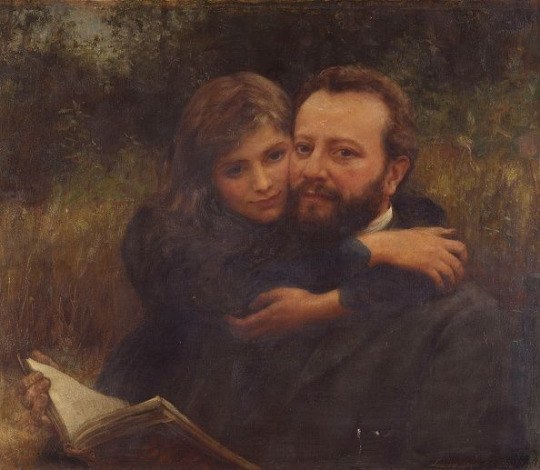

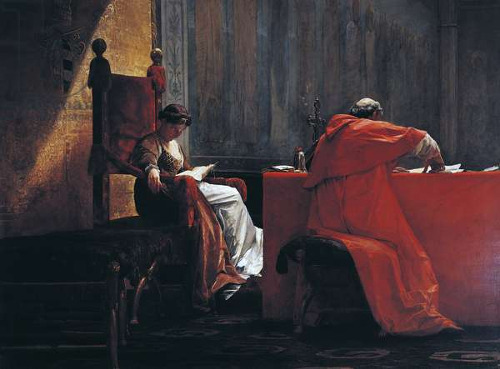


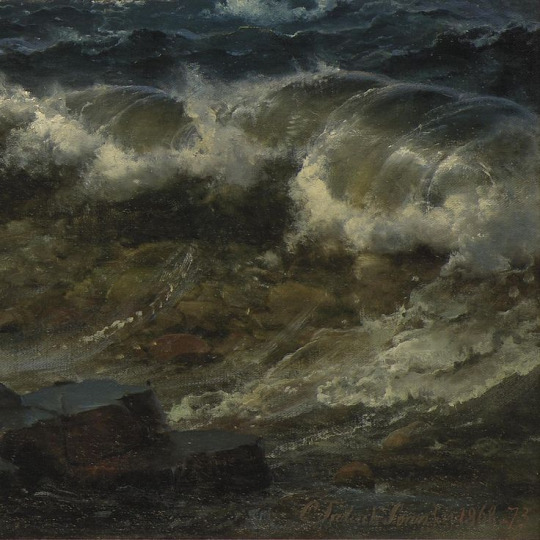

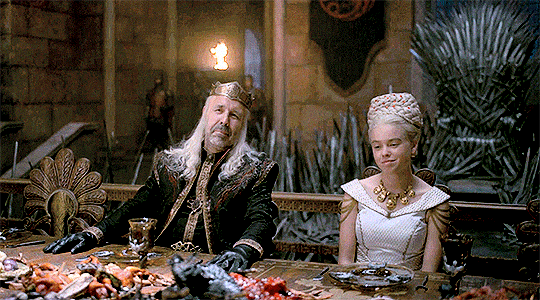
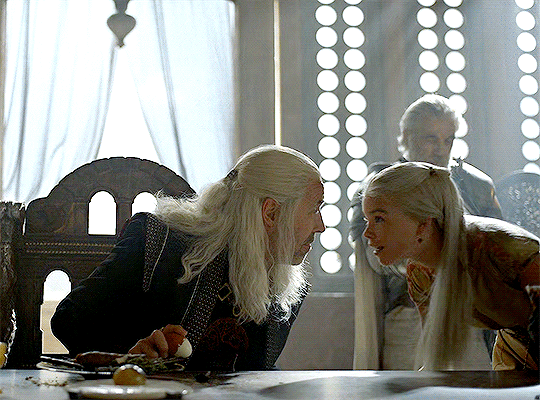



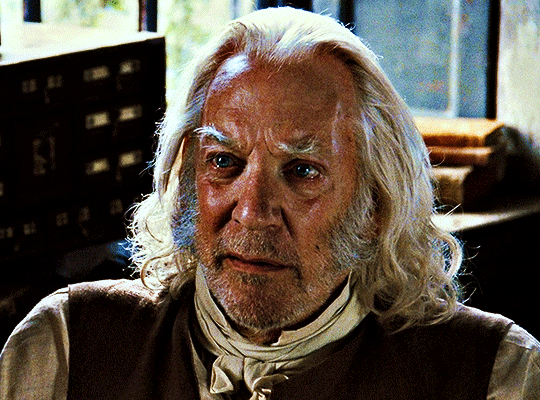
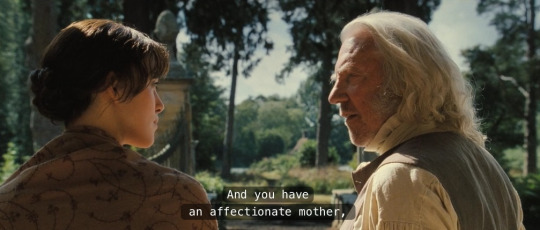
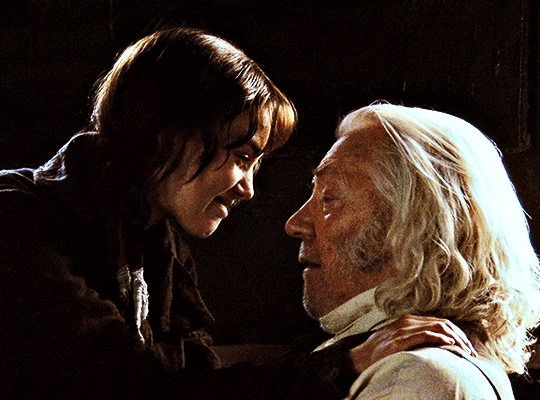

𓇼˖。°๑ playlist 𓇼˖。°๑ 1. die your daughter — susannah joffe 2. like him — tyler, the creator 3. marjorie — taylor swift 4. glimpse of us — joji 5. fourth of july — sufjan stevens 6. this is me trying — taylor swift
𓇼˖。°๑ analysis 𓇼˖。°๑ if you couldn't tell, poseidon has a hard time facing his regrets re: leaving our family. I do genuinely look like Sally, so it's even more hurtful for him, especially when I'm upset with him. but we're father and daughter, and we do have a good relationship. we're both trying here. he has an easier time connecting with me than he does percy. in childhood, it always felt like our father lingered around, hence marjorie, though I had no idea how true that was until I turned 18 and we found out we were demigods.
the fictional relationship that best describes us would be viserys and rhaenyra — poseidon is more or less uninvolved in my childhood due to focusing on his duty and responsibilities of his station. it wasn't until the time came for me to learn the truth of my identity (paralleling viserys telling rhaenyra the song of ice and fire) that poseidon became a present figure in my life. my mother and his previous relationship hangs over us like aemma does over them. in my dr, where percy is meant to be a warrior and hero, I am taught to explore the more political aspects of the olympian and mythical world, like viserys raises rhaenyra to be queen. at the same time, poseidon can be very critical of me just as viserys once was with rhaenyra before she married — once, he told me "we must act as befits our station. Zeus watches us all." even in our hardest moments though, poseidon is very protective over me and proud. also paralleling viserys and rhaenyra, I seem to be his closest child, perhaps to the neglect of his other children.
𓇼˖。°๑ fictional parallels 𓇼˖。°๑ note: in no particular order 1. king viserys and rhaenyra targaryen — hotd 2. david charming and emma swan — ouat 3. haymitch abernathy and katniss everdeen — thg 4. luke and rory — gilmore girls 5. mr. bennet and elizabeth bennet — pride and prejudice (2005)
𓇼˖。°๑ want to explore more?
moodboard + playlist for my dr
moodboard + playlist for me and percy
moodboard + playlist for me and sally
moodboard + playlist for me and my s/o
follow #yoshi of cabin 3 for more of this dr
check out my other drs here

#reality shifting#shiftblr#shifting realities#quantum jumping#anti shifters dni#desired reality#shifting antis dni#shifting blog#pjo shifting#yoshi of cabin 3#pjo shifter#percy jackson shifting#pjo dr#shifting reality#shifters#shifting#shifting community#shiftok#reality shifter#shifting script#shifting consciousness#original reality#percy jackson shifter
26 notes
·
View notes
Text
in the middle before I knew that I had begun
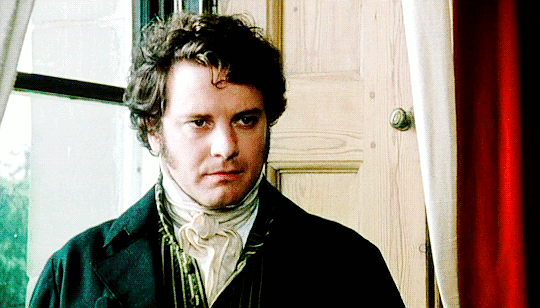
Every visit to Rosings was a trial. As a small child, it had perhaps been most bearable, Darcy whisked away to the nursery where his cousin Dickon was often already settled, making the most of the hobbyhorse which Anne was too young to mount and which would be of little use to her as she would expected to ride side-saddle as soon as she was put upon a pony. Anne’s nurse was apt to ply them with shortbread to get them to behave properly, unlike Darcy’s nurse at Pemberley who would not have hesitated to box their ears. They were brought down to the drawing room for a quarter of an hour, standing as still as they could, Dickon having invented the game he called living statues to help pass the time. It would stand Darcy in good stead over the years, especially when he was most in company. At Rosings, they would be inspected, praised by Darcy’s mother, criticized by Aunt Catherine, and offered cakes by Dickon’s mother, who was quite plump and fussed least about crumbs and sticky fingers.
Returning every year was an obligation, one which only grew more binding after his mother’s death, though her absence was keenly felt, unblunted by time as Georgianna grew to resemble her. Her daughter was more like her in manner than in coloring, though she had her fair and unblemished complexion. Darcy could no sooner have stayed away from Rosings than gallop to the Moon upon a road of starlight, a fanciful image he’d conjured for Georgianna one night when she was recovering from a childhood illness, still fretful from her fever. If their mother had lived, perhaps he might have visited friends, stayed in London and made a wider acquaintance than that of the Bingleys, however fond he was of Charles. As it was, it was Darcy’s fondness which kept Charles from suffering more than one visit to Rosings, a boon even the sunny-natured Bingley was deeply thankful for. Darcy went, Georgianna accompanying him if her health allowed, the only argument Aunt Catherine would ever countenance, and he sat through dull afternoons and duller dinners, dull vintages and even duller volumes in the Rosings library. He listened to his cousin Anne play endless sonatas competently but without any particular feeling and he did his best to keep from striking the sycophant vicar Mr. Collins his aunt had given the Rosings living to; unlike her, Darcy was not remotely pleased by the man’s obviously intricately planned adulatory remarks, the slavering expression in his rather small eyes every time he uttered the most-esteemed Lady Catherine de Bourgh, an appellation Darcy felt did not need to be mentioned in every third sentence.
A visit to Rosings was a trial and an obligation, a chore and a burden, until he arrived and found a stranger at the pianoforte, a vibrant, chestnut-haired young woman in a very simple muslin gown, his cousin Anne sitting beside her. Anne had never looked more sallow and sickly, her costly gown and jewels emphasizing her frailty in contrast to the bloom of the woman beside her, whose hair was held back by a plain ribbon fillet, her only adornment a modest little cross of some dark stones. She was playing the piano with more zest than accuracy and Darcy was dismayed to be unsure which aspect was pleasing Anne enough to make her pallid lips curve in a small but entirely genuine smile.
Anne stood when she saw him while the woman stopped playing but remained seated. He walked over to greet his cousin, bowing smartly while she made a gesture akin to a curtsy, the formality due their stations far outweighing any mild familial affection they might have for each other.
“Cousin Fitzwilliam, welcome. If you are here, you must have already seen Mama who have advised you to come. I hope your journey was not too taxing and that you will stay here a while and enjoy some music. My new companion, Miss Elizabeth Bennet, came just last fortnight. She is the cousin of the vicar and Mr. Collins was only too glad to discover he might have been able to in any minute way be of service to me, and by extension, my most-esteemed mother, Lady Catherine,” Anne said. She’d spoken more words than Darcy had ever heard her utter at one time, and though she was still quite pale and her curls rather lank and drooping, there was an unusual animation in her tone. She turned slightly to face Miss Bennet. “That is how he said it, wasn’t it, dear Elizabeth?”
“I believe he was only too glad and most assuredly blessed beyond measure,” Miss Bennet replied. She had the finest dark eyes Darcy had ever seen and her voice was confident and gay, far different from every other companion he’d ever encountered, women most often faded misses of indeterminate age who spoke little and softly, nearly always offering only an affirmation.
“That’s him exactly. He’d pressed his hands together as if he were about to give a homily in the pulpit and Mama gave him her falcon-sighting-prey glare and he only nodded his head several times,” Anne said.
“He was honest though. I’ve never met someone as delighted as Mr. Collins is to render even the most insignificant service to Lady Catherine and I myself am certainly fortunate to have been offered the position as your companion,” Miss Bennet said. Darcy had never heard a companion speak so frankly to her betters about her role and felt he ought to be disgusted. Instead he was diverted, a condition he experienced rarely.
“I am the fortunate one, as you are far more lively and engaging than I could ever be. I’ve never known the days to pass so quickly,” Anne said.
“They shall pass quicker still when your strength improves and our walks about the countryside are more extensive,” Miss Bennet said, a remark which could have been cutting, as if might have been if Miss Caroline Bingley, Charles’s rather odious sister, had spoken it, but which was only imbued with a gentle, genuine warmth and kindness. “Though you risk a muddy hem three inches deep when you join me and your mother may be as disappointed in your deportment as she was in mine. I must admit, Mr. Darcy, I did not bow my head and offer an apology. Indeed, my courage rises at every attempt to intimidate me.”
“You are singular, Miss Bennet,” he said.
“And you have not even heard me attempt ‘Les deux petits savoyards,’” she countered, moving her hands back to the pianoforte’s keys.
“Oh do play, dear Elizabeth,” Anne said and Darcy inclined his head in agreement, at a loss for words. The melody began, quite spirited, much like the musician herself and Darcy realized this visit to Rosings was itself singular.
For he had fallen in love. With his Cousin Anne’s paid companion. A servant.
Somehow, he’d have to find a way to marry her.

Written for Janeuary 2025 @janeuary-month day 7, prompt: servant.
Posted in the better late than never spirit.
#pride and prejudice#pride and prejudice au#janeuary 2025#elizabeth bennet#fitzwilliam darcy#anne de bourgh#servant au#romance#darcy POV#rosings#elizabeth is anne's paid companion#mr. collins#lady catherine de bourgh#fitzwilliam family#charles bingley remains darcy's BFF#I decided Colonel Fitzwilliam's first name is Richard
21 notes
·
View notes
Note
I like Mansfield Park better than P&P because, the timid child of a neglectful and arguably emotionally abusive couple who is limited, for years, by her own damage? Yes, that.
I think the post this was responding to was about my dislike of pitting P&P and MP against each other, so I'll admit, I was a bit "???" about this.
I do like both Fanny and Elizabeth quite a lot, and I think they both make a lot of sense in terms of the intersections of their basic temperaments with their experiences at home. But where Elizabeth's aunt (and uncle) give her a healthier affection, a home away from home, and positive adult exemplars, Mrs Norris makes everything 10x worse for Fanny than the Bertrams would do on their own.
I don't think Elizabeth is unaffected or unlimited by her parents' inadequacies or dysfunction (both in their relationship with each other and as parents), she's just a much livelier and more outgoing sort of person, and for some, her charm covers up the extent to which she is affected by her home environment. But some people are lively and outgoing and personable while also deeply affected by harmful upbringings. I talked about it another post in the tags, but to reproduce my opinion more readably:
I do think there's a kind of interesting parallel in Elizabeth distinguishing her wit from Mr Bennet's, but actually falling into similar traps, and Darcy plainly distinguishing his pride from Lady Catherine's officious obnoxiousness—after involving himself in someone else's marriage decisions! I think those are actually very realistic depictions of how people can intellectually recognize problems in the previous generations, but absorb and internalize their ways of thinking, nevertheless.
P&P is certainly more optimistic and lighter-hearted about this than MP, but for me, they form natural counterparts to each other—a fuller picture than we'd get from either alone, even as each novel is (to me) largely realistic and compelling in its own right. It's why they're my favorites. So I do find it frustrating that so much of the discourse around them is about pitting them against each other, regardless of which is being propped up.
#anon replies#respuestas#austen blogging#austen fanwank#elizabeth bennet#fanny price#mr bennet critical#anghraine rants#long post#etc
39 notes
·
View notes
Text
Someone should do a series where they rewrite classic literature, but in the form of DnD transcripts. For example:
MR. DARCY: I inform Miss Elizabeth Bennet that her social rank is inferior, her family is embarrassing, and that everyone in my circle would find any alliance between us to be disgraceful and deplorable. Yet, despite her obvious flaws, I find myself deeply in love with her against my will, reason, and character. MR. DARCY: I now roll for Persuasion and ask her to marry me and end my suffering. MR. DARCY: (rolls a Critical 1) DM: With just barely constrained rage, Ms. Elizabeth Bennet turns down your proposal. MR. DARCY: ... May I ask why?
#also i don't know how dnd works so I don't know if this would be an accurate simulation of what it would be like lol#plz don't come for me in your replies/reblogs#dnd#dungeons and dragons#literature#classic literature#jane austen#pride and prejudice#pride & prejudice
24 notes
·
View notes
Text

Today at Pemberley, The 3rd of February:
After much coaxing from Mrs. Elizabeth Darcy and Miss Georgiana Darcy, Miss Mary Bennet was prevailed upon to play at the pianoforte in Pemberley’s drawing room. Though her performance lacked the grace and beauty heard in Miss Georgiana’s mastery of the instrument, Miss Bennet received high praise from all present.
Indeed, when Mr. Bennet began to comment, “I should think the instrument too grand for—” He was swiftly cut off by a loud cough from Mrs. Darcy. He turned to look at her, surprised by the censure.
“Papa, is it not admirable how Mary is happily sharing her interest in pianoforte with Georgiana, despite Georgiana being the superior in skill of the two. I do not believe I have ever seen such social grace from her.”
“You are right, Eliza” Mr. Bennet agreed, thoughtful. “Her performance is worthy of praise not criticism.”
Shortly thereafter, Miss Mary Bennet confessed that she had several sheets of music meant to be played by two performers which she had always wished to play. Miss Georgiana Darcy joined her at the pianoforte without further prompting and they played together.
Previous days at Pemberley here
#today at pemberley#pride and prejudice#regency#jane austen#lizzie bennet#Elizabeth bennet#Mary bennet#the bennet#in-lawing#fiction#writing#daily writing#creative writing#microfiction#atpem
12 notes
·
View notes
Note
pls talk to us about mrs bennet, she intrigues me
ohhh boy does she intrigue me too
I will gladly talk about her, and I'll try not to just reiterate everything said in the youtube video In the Defence of Mrs Bennet. So, Mrs Bennet is one of my favourite characters in Pride and Prejudice, and more than that, I believe she's much more understandable than people give her credit for.
I will admit that part of me being violently pro Mrs Bennet is because if I see a married couple where the wife is portrayed as an annoying fool and the husband is seen as cool and clever, I'm bound to find the wife more sympathetic than she's supposed to be. But like! All Mrs Bennet wants is for her daughters to be safe and secure, can you blame her for that! To me the Bennets are the architypal parents. Mrs Bennet's the mother who pressures you to study and to get a job. It's annoying and distressing, but all she wants is for you to be okay. Mr Bennet is the father who's cool and laid back and stays out of your business (doesn't even know what your job entails).
Now, I'm not saying Mrs Bennet is a moral person. She's not, she mostly cares about herself and her own family. Her opinion on other people is very flexible; if they're useful to her, she will be all honey and sunshine; if they're not, she will not care how rich or grand they are, she will hate them until they're useful again. Mr Bingley is the most wonderful guy when he likes Jane; when he seems to leave her, he becomes "a very undeserving young man". She hates the thought of Mr Collins until she learns he wants to marry one of her daughters. She's one of the people who are "most violently against" Mr Darcy, because he slighted Lizzy (and she continues to hate him until he gets himself in check and gets engaged to Lizzy). AND she calls Darcy out to his face for being a pompous prick, like the queen she is. Nothing but respect to my president.
This is how I get to one of Mrs Bennet's most defining features: She loves and defends her daughters, always. She has her favourite in Lydia, but when Mr Bennet only favours Lizzy, she criticizes him:
"Lizzy is not a bit better than the others: and I am sure she is not half so handsome as Jane, nor half so good-humoured as Lydia. But you are always giving her the preference.”
(Fun fact, in the first Finnish translation 1922 she also says Lizzy's not "half as gifted as Mary", and I'm not sure if this is the translator going rogue with his love for Mary or if this is present in other iterations. It sure wouldn't be the only time the translator went rogue with Mary, since he also mistranslated Mary being described as one of the "most accomplished" girls in the neighbourhood to her being one of the "prettiest". Hey, no shame in being a Mary fan!)
“I am astonished, my dear,” said Mrs. Bennet, “that you should be so ready to think your own children silly. If I wished to think slightingly of anybody’s children, it should not be of my own, however.” “If my children are silly, I must hope to be always sensible of it.” “Yes; but as it happens, they are all of them very clever.”
She also reminds Mr Bennet that it's not fair of them to expect their teenage girls to be as sensible as they are. And like? She's correct?
Also, Mrs Bennet dares to be critical of the system they live in. She is seen as silly for complaining about the entail and her daughters not inheriting her husband, but she is simply venting her frustrations on a system that is unfair. And if you look at her background, it's very understandable. She comes from new money, the oddities of the gentry are not familiar to her. And so are unfamiliar some of the etiquette rules that she unknowingly breaks during the book.
BUT! Despite her not always being smart (not a moral failing!) and her being rude from time to time (iconic behaviour!), she gets everything she wants. The book starts with Mrs Bennet wanting her daughters to find husbands, and in the end, they do. One of my favourite moments is her predicting rain when Jane leaves for Netherfield and then her acting like she herself was the rainmaker. But to be fair, she wished for a tiny rain that would make Jane stay at Netherfield for the night; she got a 9,223 word Bingley/Jane hurt/comfort fic, during which Darcy fell head over heels in love with Lizzy. Mrs Bennet is God's favourite little meow meow. The universe is tuned to give her power and happiness. As it should be.
This was probably so incoherent, I'm sorry. I love talking about Pride and Prejudice, rotating them in my head so hard they get dizzy
8 notes
·
View notes
Text
One criticism of Jane Austen is that she ignored the lower classes. I find this kind of dumb on multiple levels, primarily because not every work of fiction or social criticism needs to include every single social ill, but also because she does talk about servants/the lower classes quite a bit more than people realize and what she says is important.
The overall theme: kindness to servants/the lower classes/the poor is a very important mark of character.
We all know that Elizabeth Bennet changed her mind about Mr. Darcy after hearing a positive character reference from his housekeeper, but that is just one example of many. The Dashwood girls are better employers than John & Fanny since they easily find servants to move across the country with them: Her wisdom too limited the number of their servants to three; two maids and a man, with whom they were speedily provided from amongst those who had formed their establishment at Norland. Also, servants tended to brag about having wealthy employers, these three servants wanted both a far away and a less prestigious job. John & Fanny were really that bad!
Another mark against General Tilney's character is that he gets irrationally angry at/scares servants:
To such anxious attention was the General’s civility carried, that not aware of her extraordinary swiftness in entering the house, he was quite angry with the servant whose neglect had reduced her to open the door of the apartment herself. “What did William mean by it? He should make a point of inquiring into the matter.” And if Catherine had not most warmly asserted his innocence, it seemed likely that William would lose the favour of his master forever, if not his place, by her rapidity.
“Why! How can you ask the question? Because no time is to be lost in frightening my old housekeeper out of her wits, because I must go and prepare a dinner for you, to be sure.” (Henry, on his father coming to his house for a visit. This may be half a joke, but General Tilney is very critical of the meal)
Mrs. Ferrars's character is made quite plain in this complaint about paying annuities (basically a pension here) to some of her husband's old servants:
I have known a great deal of the trouble of annuities; for my mother was clogged with the payment of three to old superannuated servants by my father’s will, and it is amazing how disagreeable she found it. Twice every year these annuities were to be paid; and then there was the trouble of getting it to them; and then one of them was said to have died, and afterwards it turned out to be no such thing. My mother was quite sick of it. Her income was not her own, she said, with such perpetual claims on it; and it was the more unkind in my father, because, otherwise, the money would have been entirely at my mother’s disposal, without any restriction whatever.
Mrs. Ferrars is loaded, and she begrudges paying a few pounds to 3 servants. She is greedy and ungrateful.
Mrs. Norris's treatment of the servants is similar to her treatment of Fanny. It shows the depth of her miserliness (how much could one boy really eat?) and also cruelty:
"I had been looking about me in the poultry-yard, and was just coming out, when who should I see but Dick Jackson making up to the servants’ hall-door with two bits of deal board in his hand, bringing them to father, you may be sure; mother had chanced to send him of a message to father, and then father had bid him bring up them two bits of board, for he could not no how do without them. I knew what all this meant, for the servants’ dinner-bell was ringing at the very moment over our heads; and as I hate such encroaching people (the Jacksons are very encroaching, I have always said so: just the sort of people to get all they can), I said to the boy directly (a great lubberly fellow of ten years old, you know, who ought to be ashamed of himself), ‘I’ll take the boards to your father, Dick, so get you home again as fast as you can.’ The boy looked very silly, and turned away without offering a word, for I believe I might speak pretty sharp; and I dare say it will cure him of coming marauding about the house for one while. I hate such greediness—so good as your father is to the family, employing the man all the year round!”
It also highlights her hypocrisy, as Mrs. Norris has moved in during the play to help with the preparations, so she is getting free meals all week but she won't let this kid eat when he's helping his father (who is building the stage for the play)
Mr. Knightley considers the common people of Highbury before moving a path, even though he likely owns all of the land and can do whatever he wants:
"But John, as to what I was telling you of my idea of moving the path to Langham, of turning it more to the right that it may not cut through the home meadows, I cannot conceive any difficulty. I should not attempt it, if it were to be the means of inconvenience to the Highbury people, but if you call to mind exactly the present line of the path"
The kind Musgroves, who have given their nursemaid a retirement plan instead of turning her out:
A chaise was sent for from Crewkherne, and Charles conveyed back a far more useful person in the old nursery-maid of the family, one who having brought up all the children, and seen the very last, the lingering and long-petted Master Harry, sent to school after his brothers, was now living in her deserted nursery to mend stockings and dress all the blains and bruises she could get near her, and who, consequently, was only too happy in being allowed to go and help nurse dear Miss Louisa.
And who clearly are rewarded for this kindness.
Anne Elliot showing kindness to Mrs. Smith, who has nearly fallen right out of the gentry, vs. her fathers disdain for charity:
“Westgate Buildings!” said he, “and who is Miss Anne Elliot to be visiting in Westgate Buildings? A Mrs Smith. A widow Mrs Smith; and who was her husband? One of five thousand Mr Smiths whose names are to be met with everywhere. And what is her attraction? That she is old and sickly. Upon my word, Miss Anne Elliot, you have the most extraordinary taste! Everything that revolts other people, low company, paltry rooms, foul air, disgusting associations are inviting to you. But surely you may put off this old lady till to-morrow: she is not so near her end, I presume, but that she may hope to see another day. What is her age? Forty?”
Added to Sir Walter and Elizabeth's idea to cut expenses:
“Can we retrench? Does it occur to you that there is any one article in which we can retrench?” and Elizabeth, to do her justice, had, in the first ardour of female alarm, set seriously to think what could be done, and had finally proposed these two branches of economy, to cut off some unnecessary charities, and to refrain from new furnishing the drawing-room; to which expedients she afterwards added the happy thought of their taking no present down to Anne, as had been the usual yearly custom."
Vs. how the Crofts treat the poor:
She could have said more on the subject; for she had in fact so high an opinion of the Crofts, and considered her father so very fortunate in his tenants, felt the parish to be so sure of a good example, and the poor of the best attention and relief, that however sorry and ashamed for the necessity of the removal, she could not but in conscience feel that they were gone who deserved not to stay, and that Kellynch Hall had passed into better hands than its owners’.
Henry Crawford's moral fall begins with ignoring the needs of his tenants:
"I have half an idea of going into Norfolk again soon. I am not satisfied about Maddison. I am sure he still means to impose on me if possible, and get a cousin of his own into a certain mill, which I design for somebody else. I must come to an understanding with him. I must make him know that I will not be tricked on the south side of Everingham, any more than on the north: that I will be master of my own property... I have a great mind to go back into Norfolk directly, and put everything at once on such a footing as cannot be afterwards swerved from. Maddison is a clever fellow; I do not wish to displace him, provided he does not try to displace me; but it would be simple to be duped by a man who has no right of creditor to dupe me, and worse than simple to let him give me a hard-hearted, griping fellow for a tenant, instead of an honest man, to whom I have given half a promise already. Would it not be worse than simple? Shall I go? Do you advise it?”
Of course, Henry does not go to Everginham, as he knows is right, but instead goes to the party in London, where he again runs into Maria...
Yes, Austen didn't write servants/the lower classes as full characters in general, they are in the background and around the edges of the scenes, but over and over, we can sort characters into moral and immoral by their treatment of those less fortunate around them.
#servants#jane austen#mansfield park#emma#northanger abbey#pride & prejudice#sense & sensibility#persuasion#treatment of servants#and the lower classes#there are more examples these are just some#the poor and servants are there#and they tell us a lot
749 notes
·
View notes